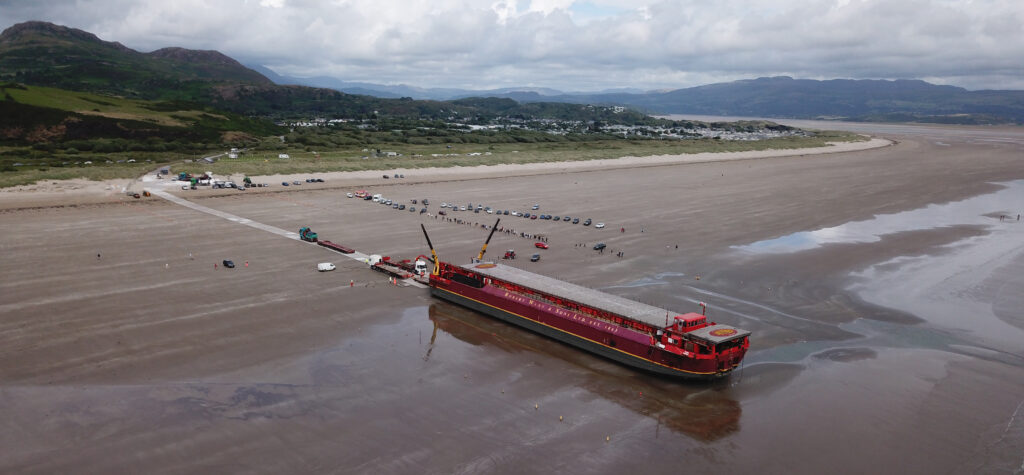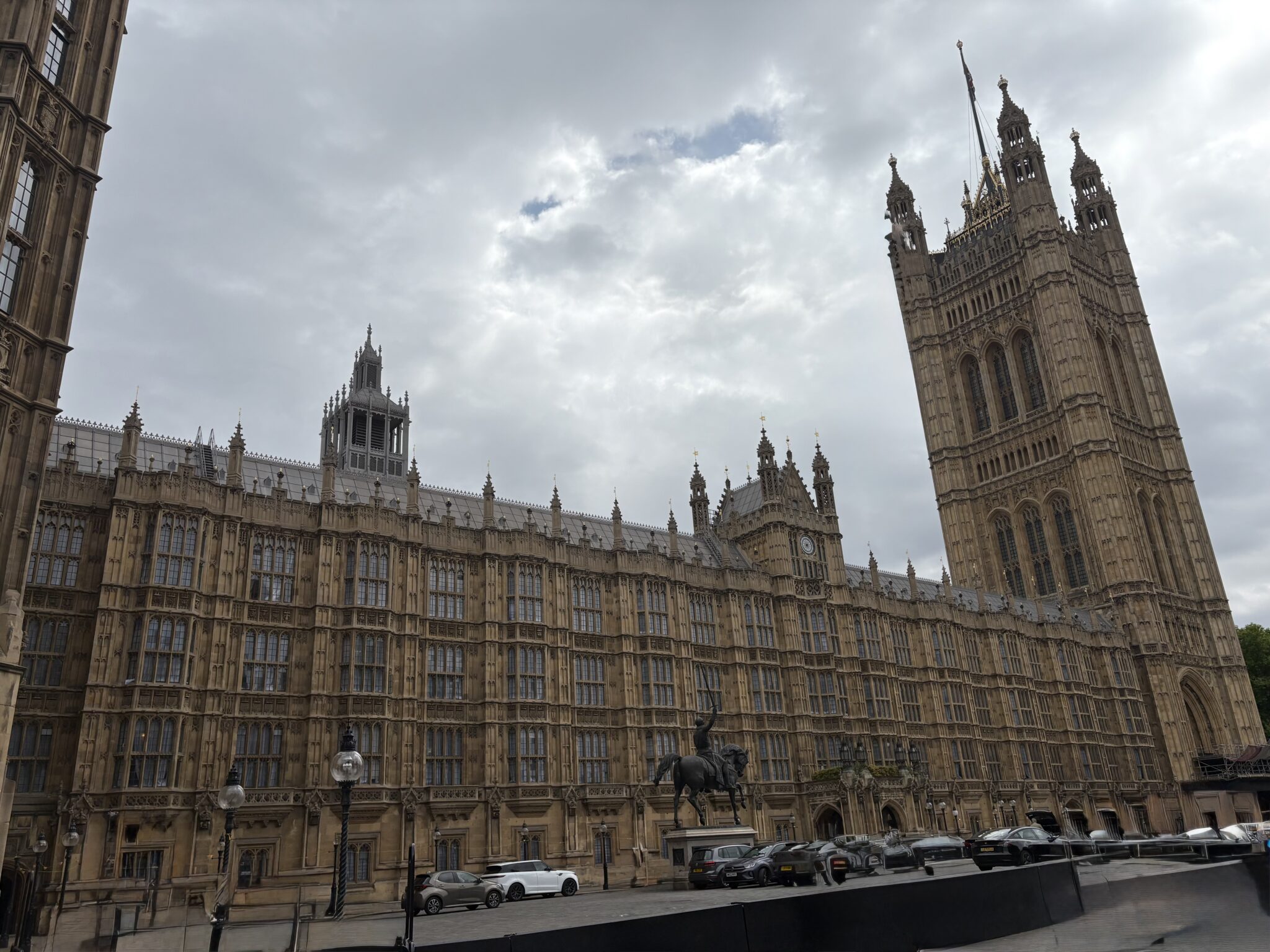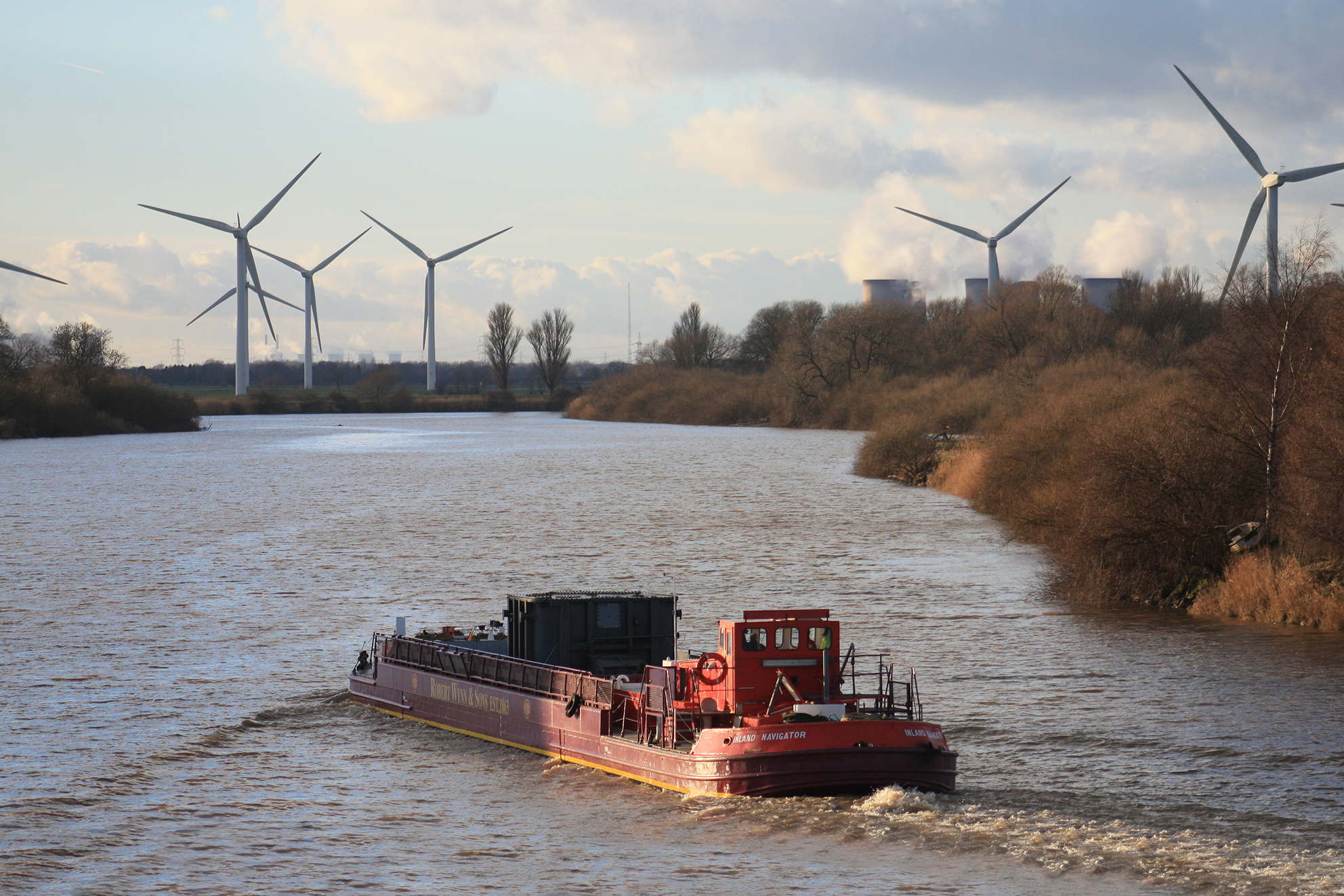Need for Inland Waterways Freight is Evident
30th May 2025

The British House of Commons in Westminster was a wonderful location for a reception on the opportunities and challenges for inland waterways freight on rivers, canals and estuaries in Britain, held last Thursday, as David Priestman reports.
An often-overlooked freight carrying network, rivers and canals have some untapped potential for sustainable transport. Forty million tonnes of freight is currently sent on UK inland waterways a year, double that for domestic coastal routes. There are 300 miles of canal waterways alone capable of taking barge freight in Britain. Abnormal and oversized loads are transport by road on motorways and highways, but these need police or traffic convoy protection, causing traffic and delays. Better, where possible, to send such cargo by barge.
The Terra Marique, owned and operated by Robert Wynn & Sons of Staffordshire, organisers of this event along with the Logistics UK trade association, was designed and built with the support of a £8.5 million Freight Facilities Grant awarded by the UK Department for Transport 25 years ago and began operation in March 2004. The Government grant aid was to facilitate the removal of the largest and heaviest abnormal loads from the road network by maximising the use of non-traditional ports, beach landings and inland waterways.

Abnormal & Indivisible Loads
The Terra Marique, registered in Newport, South Wales, is designed to operate at ‘crawl speed’ through tight spots at half a knot, fully under control. It is fitted with four water thrusters for manoeuvrability, and it is designed to take the ground, fitted with spud poles fore and aft which can be lowered to hold it in position. The ship’s very first chartering was to fetch the last British Airways Concorde aircraft from Isleworth, sailing it down the Thames estuary and then up the east coast to Edinburgh. It has now undertaken 180 charterings, carrying loads such as dock cranes, trains, turbines, transformers and energy infrastructure, including nuclear power plant components.
A second large barge vessel, the Inland Navigator, also carries abnormal, heavy cargo on rivers such as the Trent, Ouse, Aire and Caulder, with the Terra Marique navigating the Dee, Ribble and Forth, as well on the Manchester Canal and in the Solent and to the Channel Islands and France. These are waterways and ports that drove the first industrial revolution. Targets are set for rail freight so why not for waterways too? Wharf sites and freight infrastructure needs protecting for any modal shift to take place.
Council Says No
Robert Wynn & Sons’ heavy lift barge Terra Marique has been blocked from carrying cargo via the River Nene. The delivery of crucial electricity transmission components to a site in Norfolk, required as part of the UK’s transition to Net Zero, has been blocked because of a Council’s refusal to allow the oversize, heavy modules involved to be transported by water.
Despite the expertise and experience of a specialist transportation company and the availability of its purpose-built, heavy lift barge, plans to transport the components for a Synchronous Condenser along the River Nene to Wisbech have been refused permission by Fenland District Council.

Inland Navigator to Drax
The UK Government Department for Transport’s ‘Water Preferred Policy’ states that abnormal indivisible loads of this type should be moved by inland waterway whenever possible, to the closest port, to minimise the use of roads. Because of the weight and size of the items, and bridge weight limitations, the water route to Wisbech was always going to be the best option that minimised disruption. However, Government policy appears to have been dismissed and, as a result, an alternative plan is now in place to move the components all the way by road from Sutton Bridge, a far more disruptive and less sustainable solution.
The River Nene, which is entered from The Wash midway between Boston and King’s Lynn, is in regular use for shipping, notably by a fortnightly cargo shipping service from Riga, Latvia, to Wisbech. However, Fenland District Council, which is the statutory harbour/navigation authority for the River Nene, has rejected Robert Wynn & Sons’ detailed plans for navigation to Wisbech, from where the loads would be moved by road to the final site at Walpole St Andrew.
“Wisbech is Cambridgeshire’s only port – you would think the Council would treat is as a jewel,” said Peter Wynn, Managing Director of Robert Wynn & Sons. “We seem to have a Council that – despite central Government policy – believes the movement of a gross load of more than 600 tonnes along the road from Sutton Bridge is safer and better for the environment than delivery to Wisbech by water. There is a lack of joined-up thinking. This should have been an example of how things should work, but this is the opposite. As a result, we have what seems like an insurmountable obstacle to a vital Net Zero project being delivered in a sustainable way.”
The Terra Marique is wider than vessels that routinely go up the River Nene to Wisbech, said Wynn, but the navigation would be no more challenging than a series of successful deliveries made by the barge in its 20-year history.
“The processes we have had to go through to satisfy Fenland District Council have taken a huge amount of time and money – we have organised geotechnical surveys, bathymetric surveys, flow rate surveys and other consultancy work,” said Peter Wynn. “We have a passion for this, and we are not going to give up; as a company, we always focus on what can be done rather than what can’t be done.”
“The energy grid is being upgraded and redrawn as we shift from fossil fuel power stations to largescale solar and onshore/offshore wind power, plus nuclear power,” he said. “This will necessitate major upgrades and investments in our energy infrastructure, with the consequent need for the transport and delivery of large generators, transformers, etc., to sites where such large loads may not have been delivered before. We should be using every opportunity to move these units by water, not by road. If we are going to deliver Net Zero, we must change the way we are doing things.”
Wynn added: “There needs to be serious thought and subsequent action to ensure that the aspirations for Net Zero can be delivered in the manner that everybody would want, which is with minimal amounts of cost and disruption to UK plc and local communities.”
similar news

